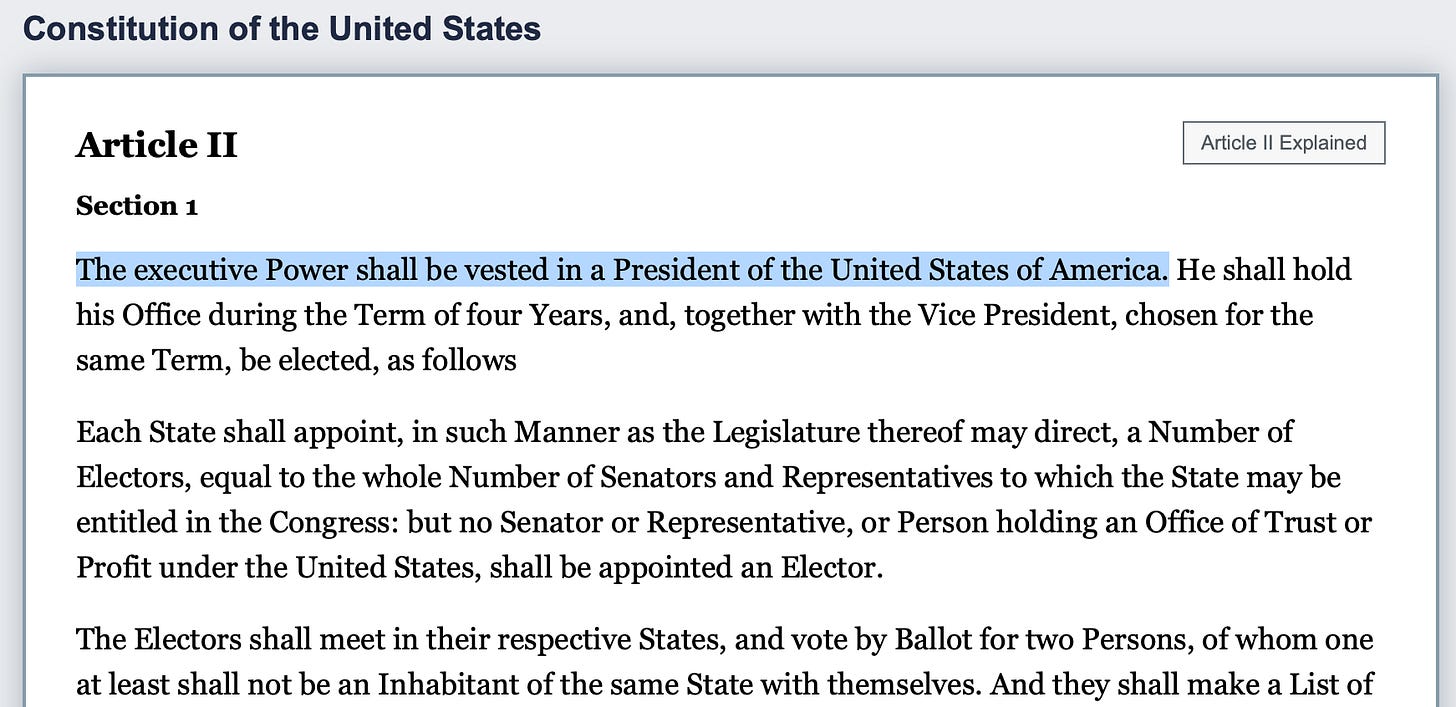Building a culture of abundance
Plus a lot of words about Graham Platner and Zohran Mamdani

This week we’ve got another round of special questions from participants in last fall’s Giving Tuesday fundraising campaign for GiveDirectly, then just a few questions from the general mailbag. There were a bunch of queries about different aspects of the Maine Senate race, and rather than answer in scattershot fashion I just wanted to do a relatively long answer, which you can find below this week’s GiveDirectly donor questions.
Jared F: The YIMBY and Abundance political goals seem to be on a winning streak, both in legislation and in attention. But how can cultural shifts follow? The holiday movie season will still be filled with developers cast as villains. You seem tuned into Abundance funders. Why don’t they fund some light YIMBY propaganda to counter the NIMBY as hero trope?
I will note that season two of “The Lincoln Lawyer” on Netflix has a NIMBY villain, so I think the tide may be turning.
The basic problem with YIMBY propaganda is that I think the evil corporate villain is structurally appealing from a storytelling standpoint, and it’s hard to translate that into a pro-housing storyline. But outside of housing, I think it’s actually relatively easy to stick with the evil corporate villain but just make it evil fossil-fuel interests who are trying to block the nuclear fusion plant or whatever. Housing is sort of unique in that the opponents of new supply tend to be decentralized groups of people worried about parking and traffic. But most anti-supply rules in other contexts are on some level business versus business conflicts.
It’s also worth saying that “Avengers: Infinity War” and “Avengers: Endgame” were two incredibly popular movies with a degrowth villain. In a sense, the entire abundance movement is downstream of the success of the Marvel Cinematic Universe.
Basil F: How should I understand what is going on with the supreme court? My high school US History class understanding of the constitution and founders is that both are generally thought to be ‘anti takeover of government by the president.’ And yet the textual originalists on the court seem to be ‘pro takeover of the government by the president.’ I find this confusing. Should I understand this as pure partisanship (e.g., if Biden was doing the taking overing they would be making different decisions), or is there actually some kind of textual basis for letting the president run rampant?
I am always on board for cynicism about the federal judiciary, but it should be understood that “unitary executive” theory is an idea with a long pedigree on the right, and most of Trump’s subversion of our basic understanding of how government should work is downstream of principles that were articulated long before his rise.
Both the administration and the current Supreme Court, for example, seem somewhat leery of pushing the argument that Federal Reserve independence is unconstitutional. But in the legal literature, there are plenty of originalists who are willing to go that far.
To me, the whole argument that independent agencies and rules against the president firing people violate the Constitution are insane. The entire case for this is literally this single non-substantive sentence that appears at the beginning of Article II of the Constitution. The text just does not say anything at all about who can or cannot fire whom or what Congress’s authority in terms of setting this up is.
The closest the Constitution comes to addressing firing is in the impeachment clause, which says “the President, Vice President and all civil Officers of the United States, shall be removed from Office on Impeachment for, and Conviction of, Treason, Bribery, or other high Crimes and Misdemeanors.” One could read that as saying that nobody can be fired without a full impeachment trial in Congress. But that’s never been the practice and it’s clearly unworkable. By the same token, I just don’t see any constitutional limit on Congress’s ability to create independent agencies if they want to pass laws that say that. Central bank independence, for example, leads to lower long-term interest rates, which is a very good reason to set up an independent central bank.
One thing I will say about Donald Trump, though, is that a lot of his personalistic rule involves things that are uncontroversially illegal.
U.S. attorneys have never been independent of the White House and it’s always been understood to be within presidential authority to fire them. Pre-Trump, though, the revelation that you fired a U.S. attorney specifically because he refused to bring a weak, politically motivated case would have been considered a huge scandal. What’s fundamentally wrecking the core functioning of the state is not novel judicial rulings, it’s the fact that congressional Republicans are abdicating their roles as guarantors of the system and that Democrats are not credibly threatening to punish them by winning Senate races.
Sam C: What would an agenda to improve commercial amenities in America’s low, mid, and high-density areas look like? Something seems broken — in the high-income California neighborhood I live in, newly-developed restaurant/retail storefronts sit unoccupied for years.
This is a surprisingly misunderstood phenomenon, given that it’s something lots of people notice and talk about. The very best research on it appears to be two working papers by Erica Moszkowski and Daniel Stackman, a pair of young economists.
One is titled “Option Value and Storefront Vacancy in New York City” and it concludes, basically, that because commercial-real-estate leases tend to be long-term, landlords have strong incentives to hold out for the best possible tenant. Part of what drives this is that compared to residential tenants, retail tenants are very heterogeneous. Some businesses have high margins, others have low margins. Some businesses derive a lot of value from being in specific locations, others are pretty generic and could do fine anywhere. Because of competition and clustering dynamics there are also a lot of different equilibriums. If a yoga studio opens up on a block, that could make it a better location for a coffee shop. If a CVS opens, that probably makes it a worse location for a convenience store. As a result, landlords are rationally — but annoyingly — choosy about waiting for the right tenant.
Their other paper, “Bleaker on Broadway: The Contractual Origins of High-Rent Urban Blight,” suggests something weirder is also going on — “widespread covenants in commercial-mortgage agreements impose rent floors for any new leases landlords may sign with tenants, short-circuiting the price mechanism in times of low demand for retail space.” I find this second paper kind of unsatisfactory because so much of it is taken up with an elaborate modeling exercise trying to calculate how much lower New York City retail vacancy rates would be if no such covenants existed (they say 14 percent lower) rather than exploring the more interesting question of why contracts with this feature would be widespread.
Policy-wise, though, I think the key point is that the long-term nature of most retail leases is a key factor. If a landlord could viably lease out a space at low rent for a short period of time rather than leaving it vacant, he’d be inclined to do so. If covenants preventing that were extremely costly, that would be a good reason to stop agreeing to them. This means in turn that anything a local government can do to reduce the fixed costs of getting a new business up and running could be very helpful. One key reason for the long-term leases is those high fixed costs that are only worth paying if you can lock the space down for a long time. Now, to an extent, those costs are outside the government’s control. But I feel confident they’re not entirely outside the government’s control and in particular in my experience regulators tend to underrate the cost of delay.
So that’s the best idea I have, admitting that it’s not incredibly satisfactory.
David W: Matt has been quite pessimistic about US politics recently. We have friends who cited the US political situation as a major part of why they moved back to Toronto, despite having naturalized with two kids. Is that too pessimistic? We work in tech in California, are our YIMBY victories cause for offsetting optimism? How many steps are there between the current situation and like... Iran. Would living in Canada even be any better in such a situation?
For an actual Canadian person to decide now is a good time to head home seems reasonable enough, but I don’t want to endorse a super-pessimistic or panicky approach for Americans.
What I’m feeling about our politics right now is alarm about some of the things that Trump is doing, but also a fair amount of frustration that Democrats are not really embracing fairly obvious countermeasures. The successes of the YIMBY movement, which are very real, don’t particularly address those core problems, but they are a reminder that the actual practice of politics does work. YIMBYs have made lots of mistakes (who hasn’t?) but they do a good job of remaining focused on their core goal, pragmatic about how to pursue it, eager to copy successful models, and willing to learn from failures. And it works! It’s not easy, but it is definitely possible to set priorities and pursue them. So I’m actually optimistic that if the anti-MAGA resistance really focuses in on the problem, we could win. But I’m annoyed that we’re not doing that.
HF: What do you think about Graham Platner and the latest news? I don’t know anything about him or Maine, but I thought it might be good to have a blue-collar young guy representing Democrats. Do you think having bad past tweets and posts resurfacing has the same effect that it used to?
I do not have super-strong feelings about Graham Platner, his tattoos, or his Reddit posts. What I guess is sticking in my craw a little bit about the whole situation is that I would like people who are pro-Platner or Platner-curious to explore the logic of Platnerism in a little bit of a more rigorous way.
For example, I take the concerns about Janet Mills’s age seriously. But did you know that Bernie Sanders has already filed papers to run for re-election in 2030?
Keep reading with a 7-day free trial
Subscribe to Slow Boring to keep reading this post and get 7 days of free access to the full post archives.


